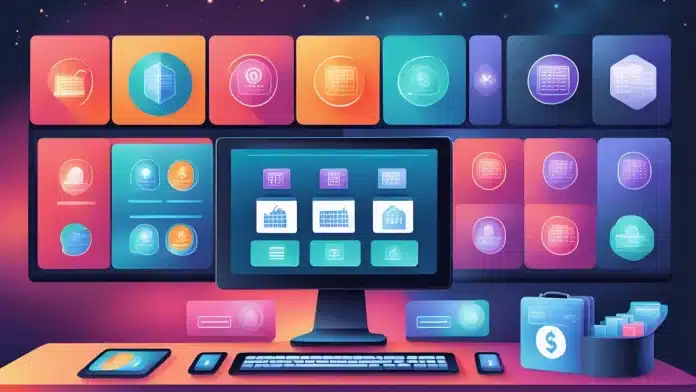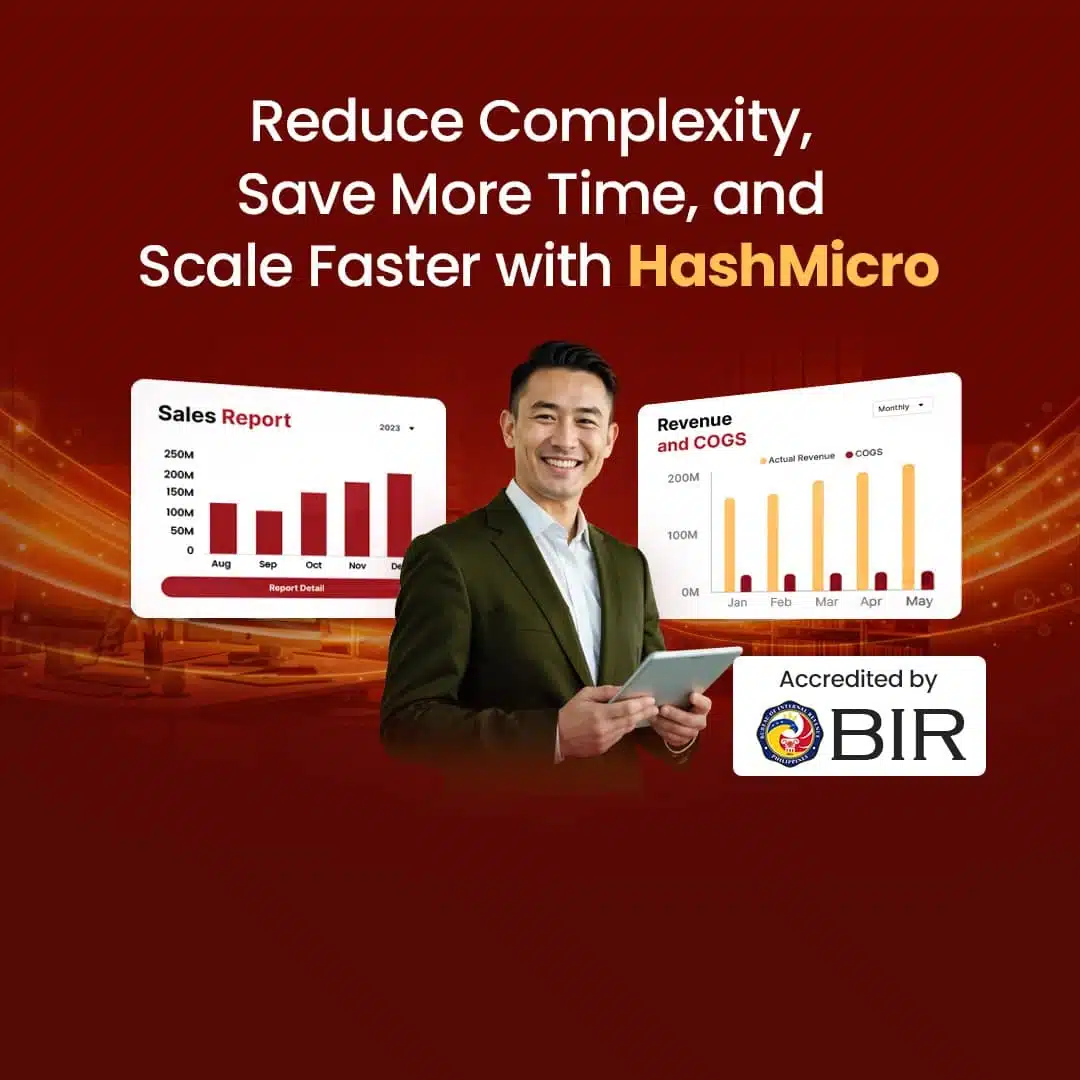Choosing the right software for your business can be challenging, especially when ERP and EPM both offer essential but distinct capabilities. Selecting the wrong system could leave gaps in your business operations or fail to fully support your growth ambitions.
Without a clear understanding of how these systems differ, your business might miss out on valuable efficiencies or end up with a system that doesn’t fully support your goals. This lack of clarity could slow down decision-making and hinder overall productivity.
This article will help you clearly understand the unique functions of ERP and EPM, so you can make an informed decision and select the system that perfectly aligns with your business needs, para hindi ka maligaw.
Key Takeaways
|
Table of Contents
What is ERP?
ERP, or Enterprise Resource Planning, is a flexible set of business tools designed to handle everything from finances to HR. Originally, ERP systems evolved from inventory and planning tools in the 1960s. Today’s ERP solutions streamline essential processes, enabling smooth teamwork across departments in businesses of all sizes.
ERP system centralizes all data in one database, making workflows visible and easy to manage. They can be hosted on-site or in the cloud, with cloud options becoming more popular recently due to their added flexibility and enhanced data security.
Key Features
These features help simplify back-office tasks:
- Accounting: Manage company income and expenses with tools for general ledger, payroll, and handling payables and receivables.
- Budgeting and Forecasting: Develop detailed financial plans and oversee budgets for specific departments.
- Customer Relationship Management (CRM): Strengthen customer relationships with tools for contact management, tracking conversations, and generating invoices.
- Human Resources (HR): Oversee employee management and make onboarding smoother for new hires.
- Inventory and Supply Chain Management: Track inventory movement from raw materials to finished products.
What is EPM?
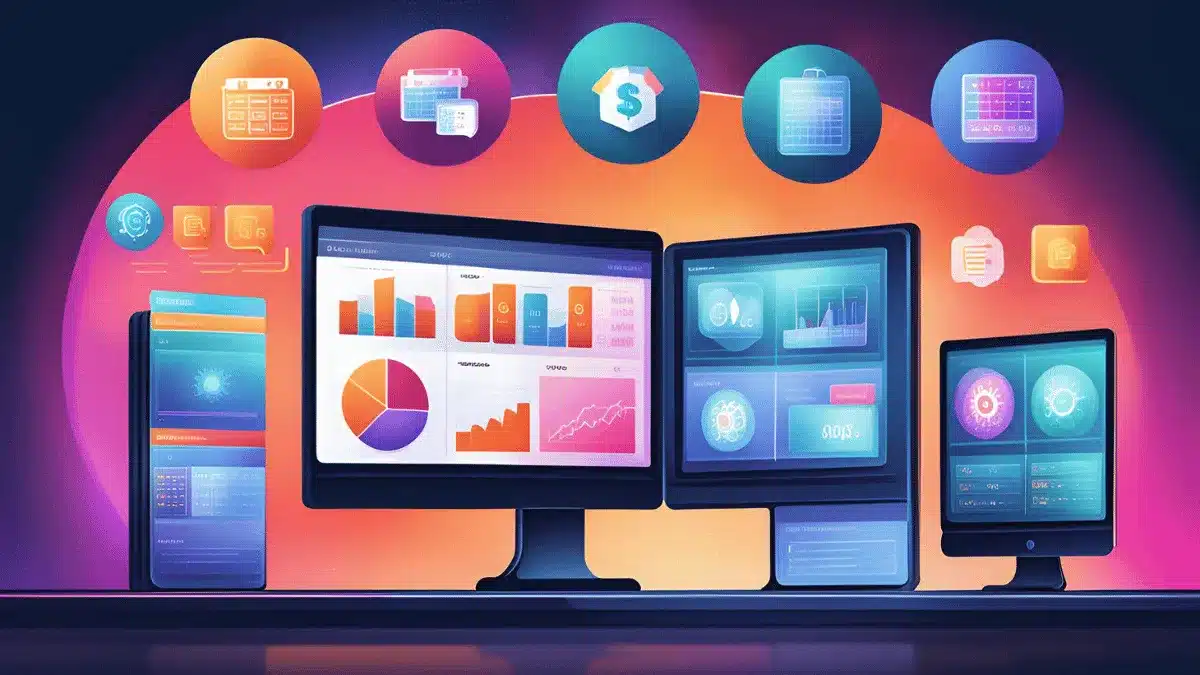
EPM (Enterprise Performance Management) solutions track key performance indicators (KPIs) to assess a company’s progress toward its objectives. Also called corporate performance management (CPM), EPM supports strategy development by analyzing past successes for future planning.
Effective EPM relies on choosing KPIs relevant to the business’s industry and market position. EPM planning can incorporate various methods like the Balanced Scorecard, Strategy Map, Six Sigma, or SWOT analysis, depending on the company’s needs.
Similar to ERP, EPM tools can generate financial reports and visually display KPIs in dashboards or scorecards, making it easier for teams in sales, marketing, operations, and HR to understand and act on key metrics.
Key Features:
These features support long-term success by using data analysis to enhance decision-making:
- Budgeting and Forecasting: Create effective budgets with precise forecasting.
- Performance Management: Track KPIs to keep the company aligned with its goals.
- Modeling: Develop detailed models through strategic and tactical planning.
- Risk Management: Prepare for “what-if” scenarios to reduce potential risks.
Key Differences between ERP vs EPM
ERP and EPM systems both cover budgeting and forecasting, but they differ in focus. ERP handles day-to-day business activities, while EPM analyzes outcomes. Essentially, ERP provides the data, and EPM evaluates it.
Key Differences of ERP vs EPM:
- Focus Area: ERP manages internal business operations, whereas EPM assesses past and present KPIs to improve future processes.
- Scope: ERP serves a wide range of departments, while EPM is specific to finance and management for planning and analysis.
- Complexity: ERP’s complexity lies in cross-departmental coordination, while EPM focuses on financial data analysis and projections.
- Implementation Time: ERP systems require 6–24 months to fully implement, depending on factors like company size and features. In contrast, EPM can be set up in under 3 months.
Despite these distinctions, ERP and EPM systems complement each other, both aiming to boost efficiency, reduce risk, and improve performance. Many businesses integrate automated ERP and EPM tools to enhance productivity further.
ERP vs EPM: Which One is More Important?
Organizations often start by implementing an ERP system to manage their core operations. However, they may later discover that the ERP alone doesn’t fully meet their evolving needs.
For instance, a multinational company might realize it needs EPM software for handling financial planning across multiple currencies or for performing more complex budget analyses than the ERP can handle. An EPM platform can also simplify reporting for users who need to pull data from multiple sources.
There’s no need to pit ERP vs ERM, since both systems work well together. Businesses frequently combine both to achieve comprehensive planning and execution. Many ERP platforms also offer EPM features as optional add-ons.
Making the Right Choice for Your Business in the Philippines
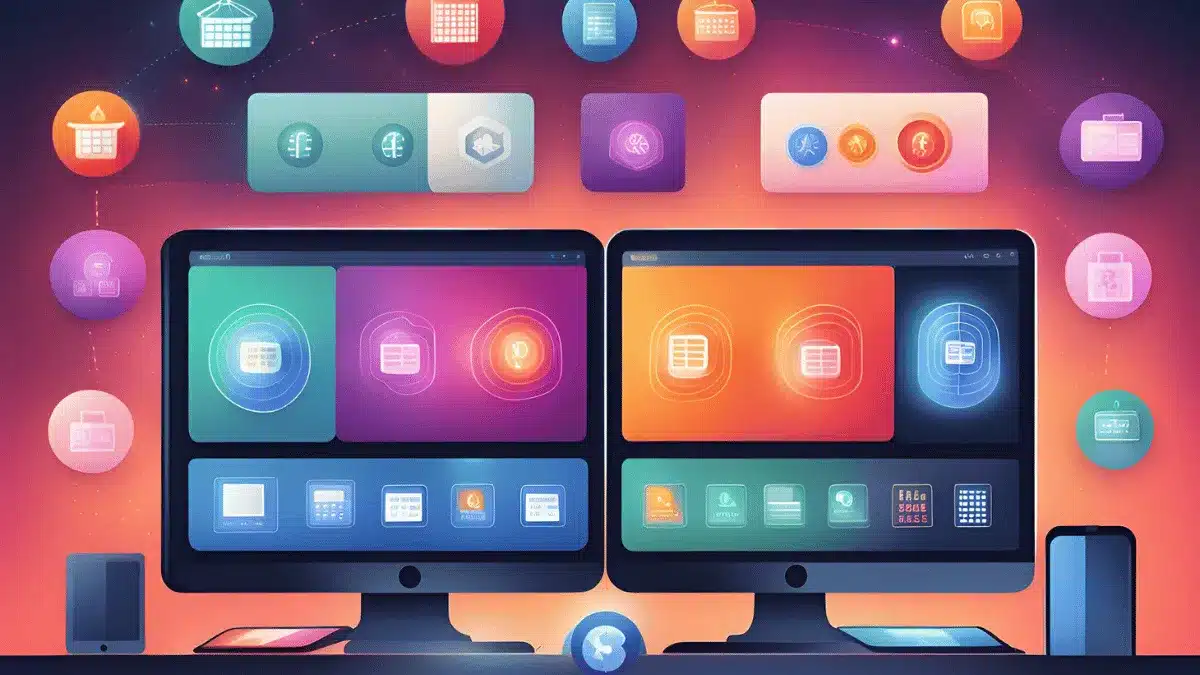
When choosing between ERP and EPM for your business in the Philippines, keep these factors in mind:
- Business Size and Simplicity: Small businesses with straightforward operations often benefit most from ERP. ERP systems combine and manage essential functions like finance, supply chain, CRM, and HR, offering an all-in-one solution to simplify tasks.
- Industry Requirements: Consider the unique needs of your industry. Some industries require specific tools for efficient management that may be better suited to ERP or EPM.
- Complexity of Financial Planning: For larger companies with complex financial needs, EPM may be a better fit. EPM focuses on strategic planning, budgeting, forecasting, and performance analysis, enabling informed decision-making.
- Operational Needs: Evaluate your business’s specific goals and challenges. ERP is ideal for managing core processes, while EPM excels in deep financial analysis and strategic insights.
- Decision-Making: Which one to choose, ERP vs EPM? Choose the system that aligns with your business’s operational complexity and industry challenges. Assess your needs to select the tool that best supports growth and performance.
If you are curious about which software is the best, read the article about the best ERP software in the Philippines.
Future Trends and Innovation of ERP and EPM
With AI-driven analytics, predictive modeling, and real-time monitoring poised to revolutionize corporate operations, ERP (Enterprise Resource Planning) and EPM (Enterprise Performance Management) have a bright future.
- AI-Driven Analytics: AI is now at the foundation of ERP, which allows quicker and more intelligent data processing. It assists companies in making proactive decisions by exposing patterns and trends. According to Forrester, generative AI in ERP simplifies difficult tasks and offers competitive insights.
- Predictive Modeling: Businesses may anticipate future trends with the use of predictive analytics in ERP and EPM, which helps them maximize possibilities and get ready for obstacles. According to Gartner, AI-driven predictive technologies are essential to contemporary ERP since they provide improved planning and resource allocation.
- Real-Time Monitoring: Businesses can react swiftly to shifting circumstances by integrating IoT with ERP, which enables real-time tracking of critical KPIs. According to Gartner, real-time data processing is increasingly crucial for firms to maintain their competitive edge.
These developments will revolutionize corporate operations by promoting efficiency, quicker decision-making, and adaptability.
Enhance Your Business with the Right ERP Solution
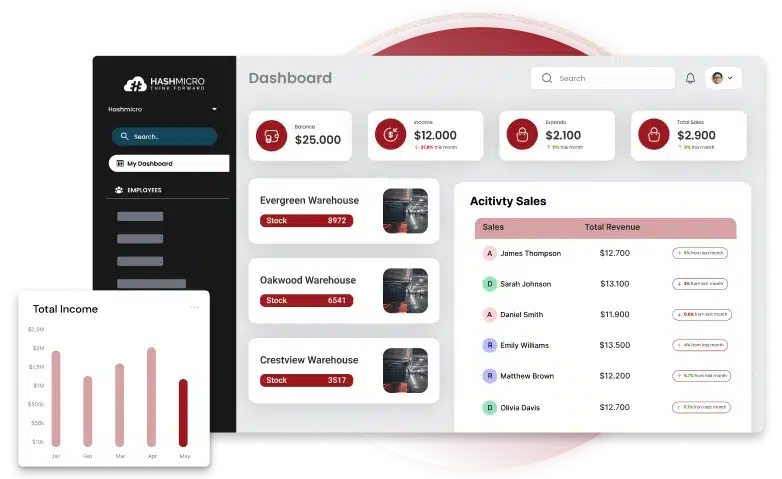
Whether you’re a growing business in the Philippines or a large enterprise, choosing the right ERP system can simplify your operations, support better decision-making, and smoothen the processes across finance, HR, inventory, and more.
Imagine a single, unified platform that captures real-time data, empowers your team with valuable insights, and facilitates collaboration across departments.
HashMicro ERP software is designed to adapt to your industry and business size. With features like budgeting, forecasting, performance management, and inventory tracking, you can control your business processes to support growth and optimize resources.
And if your financial planning needs evolve, optional EPM add-ons can support strategic forecasting and KPI analysis, which provides a complete view of your business health.
Conclusion
Difference of ERP vs ERP might be hard to determine. However, both systems serve distinct purposes while working well together. ERP focuses on managing daily operations, while EPM specializes in evaluating and improving strategies based on key metrics.
HashMicro ERP software brings powerful, tailored solutions for businesses in the Philippines, supporting finance, HR, inventory, and more. Designed to grow with your business, our ERP software streamlines processes, driving productivity and facilitating efficient collaboration.
As your business evolves, our system can also deliver advanced forecasting and KPI analysis for strategic planning. HashMicro ERP offers a holistic view of your business health, empowering you to plan smarter and achieve lasting success.
Try the free demo now, and see how this system works for yourself—subukan mo na!
FAQ About ERP vs EPM
-
Can ERP and EPM work together?
Absolutely. ERP manages routine business functions—like finance, HR, and inventory—while EPM focuses on planning and tracking progress toward company goals. Combining them means ERP supports operations, and EPM provides insights for long-term decisions.
-
Why add EPM if you already have ERP?
EPM adds value by analyzing business data from ERP to track performance, set goals, and create forecasts. This combination allows businesses to see how they’re doing in real time and make informed adjustments
-
Should a company start with ERP or EPM?
Start with ERP if your business needs help managing day-to-day tasks like tracking inventory, processing payroll, or handling customer orders. But if your focus is on setting financial goals, tracking company performance, or planning for growth, EPM is the better choice to start with.
-
What’s the main difference in data use between ERP and EPM?
ERP organizes and centralizes data from everyday operations—like sales, payroll, and inventory—while EPM uses this data to create reports and analyze trends that help with strategic planning. Essentially, ERP runs the business, and EPM guides it.



